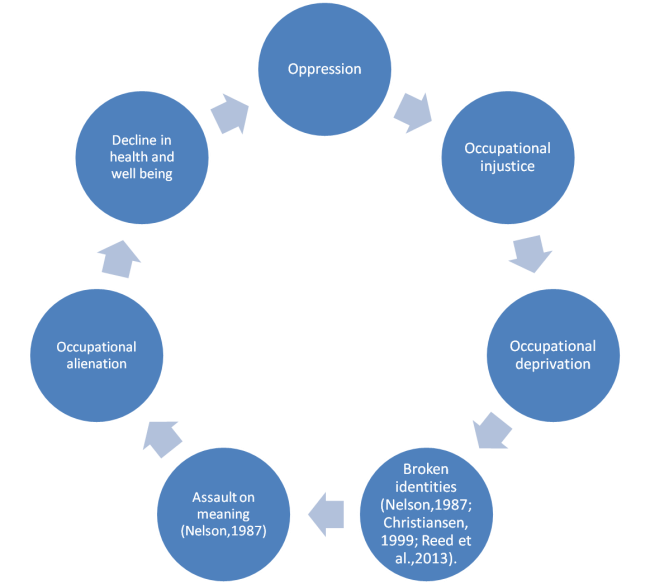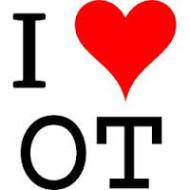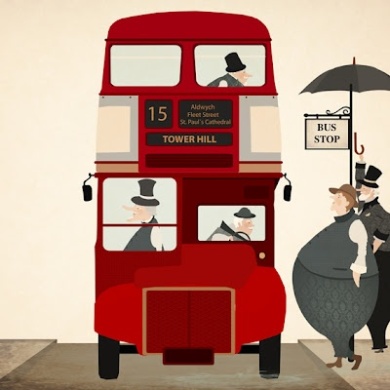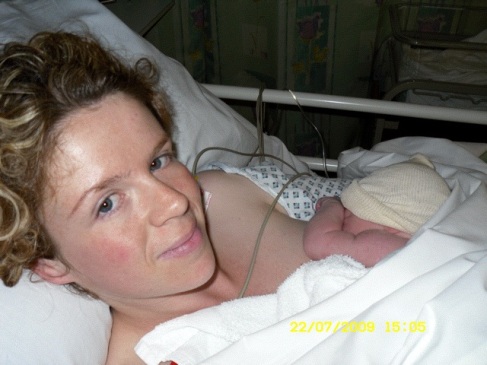Whilst on my recent placement in an emerging area of practice I began to understand the term Occupational Injustice as I saw for myself the effects that being homeless and on the margins of society has on what you can and can’t do and the impact this has on health and well being.
I recently presented on this as part of a university assignment on holistic occupational therapy and so in this post I will use some of the material from that piece of work.
Firstly I would like to share a poem I found on the Shelter (2013) website that really highlights a lack of meaning and purpose in the lives of people without a fixed address because of the occupational deprivation they face which leads to occupational alienation.
Grim awakening
Morning has once again broken
And I have rudely been awoken
By roar of cars, buses and vans
Sidewalk littered with empty cans.
Another restless night passed by
Under the canopy of a wet sky.
After the pavement was my bed
Just a long, aimless day ahead
Thinking of what should be done,
Another senseless battle to be won,
And what I can and can not do
Is this nightmare really, really true?
Just a false hope at the next bend.
Oh! When will it all come to an end?
Joseph Ribicki (Shelter, 2013)
I also constructed this cycle, using the work of Hammell (2008) to show the relationship between oppression, occupation and wellbeing from a theoretical standpoint
As occupational therapists we accept there is a link between engaging in meaningful and purposeful occupation and positive health and well being, but a problem arises when we understand that access to meaningful and purposeful occupation is not universal and is in fact very challenging to many groups of people. It is my hope that the potential of OT with the homeless is acknowledged and this becomes a growing area of practice. Being homeless is a very complex problem and presents barriers to every activity of daily living, from the most basic of human needs such as restful occupation and eating to accessing education and employment. It is no wonder that this population experience an extremely high rate of poor mental and physical health and that substance abuse is prevalent.
I am extremely grateful to have been able to have a placement in a role emerging setting, it really broadened my horizons and made me realise that there are many groups of people and issues to address that could benefit from our skills and service away from traditional settings. I believe that pioneering for occupational justice is one of our callings as occupational therapists, and there is much work to do.







